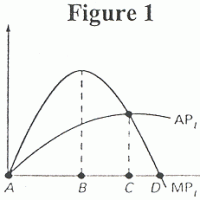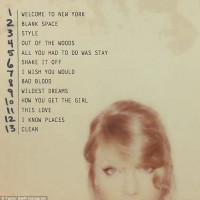The Guardian reports on various theatres in England experimenting with pay-what-you-decide pricing - essentially passing the hat at the end of the show - as a means of attracting new audiences and 'breaking down barriers.' ... the initiative is less about simply removing the financial barrier than removing the financial risk, which are two quite different things. After all, if people know that they want to see something, they will often find the money. It’s when they are uncertain about a show that they are less willing to take a risk … [Read more...]
Streaming and royalties for musicians – a plea for better reporting
On the weekend the New York Times had an article from Clyde Haberman, a brief history of musicians' earnings in the digital age. It included this (now oft-reported case): ... thus far, the people who create the music on which others build their fortunes often receive mere rivulets of reward. Not everyone is a Beyoncé or a Taylor Swift (who has removed her entire oeuvre from Spotify to keep it behind a pay wall). Many more musicians are like Zoe Keating, a cellist from Northern California who described her situation in detail last year. Over a … [Read more...]
Health policy is arts policy
A country that provides all residents, regardless of employment status, with health insurance, presents a vastly different environment for artists than one that does not. I wrote about this recently, in the context of the November election. Whether painters, writers, and actors can try to 'make it' in their calling without having to track down the sort of employment that comes with health insurance as a benefit is, in the grand scheme of things, a lot more valuable than whether the budget of the state arts council rose by five percent or not. … [Read more...]
Efficiency in Fund Raising – A Technical Note
The National Center for Arts Research has released its report on The State of the Arts - a compendium of data and what I call 'kitchen sink' regressions (i.e. looking for statistical relationships by including all data that might conceivably matter and seeing what comes out the other end, rather than generating the regressions through a more formal model of firm behavior. Not that there is anything wrong with that - I've done it myself in research papers). In their section on fundraising, they find: The average organization brought in … [Read more...]
Are bands on tour winner-take-all?
Well, Pomplamoose might not have made any money on tour, but band member Jack Conte's accounting of revenues and costs has sure generated a lot of discussion, and hopefully more people who know about the band. My last post was about the fact that it has always been a tough way to make a living, but here I want to address an issue that has surfaced: is the fate of Pomplamoose, doing everything right (maybe) and still not generating net earnings a microcosm of the middle-class in America, increased inequality, and a winner-take-all economy? At … [Read more...]
No promises
A few folks now have linked to the fascinating piece by Jack Conte of the band Pomplamoose (the high-school French student in me smiles) on an accounting of the costs and revenues, to the dollar, of mounting a month-long tour. Spoiler alert: even with good crowds, they lost money (just under $12k). Their three revenue sources of ticket income (just shy of $100k), net revenues from merchandise (small) and a small sponsorship couldn't meet the costs of mounting the tour, with all the production and labor and contracting costs. The piece is not a … [Read more...]
Gender and price discrimination
Women pay more than men for some products. Why is this, and is this a situation where there oughtta be a law? Last week, Time reported that women consumers' advocates in France were pressing for a law that would prohibit price discrimination where men and women use virtually the same product (razors, deodorant) but men typically pay less. Think Progress reports on complaints about gender-based price discrimination at Old Navy. And here is a longer report on the subject, from 2012, from Marie Claire. A few thoughts (with the caveat that … [Read more...]
Streaming – a view from the other side (updated)
The New York Times has an 'Opinionator' series asking 'Is Streaming Good for Musicians?' It's a narrow question, since in any dispassionate analysis 'Is Streaming Good for People Who Listen to Music?' would also factor into the evaluation of this technology. That said, let me try to broaden the debate a little bit. As a thought experiment, imagine a very, very large musicians' co-op, one that was able to deliver songs digitally to listeners, without separate companies called 'record labels', without 'distributors', without 'Spotify' or … [Read more...]
Price discrimination and timing
Publishers delay the release of paperback versions of books as a means of price discrimination. 'Strong' customer markets pay the premium price for the immediately available hardcover, while 'weak' customer markets pay the lower price for the paperback, which is inferior in two ways: less sturdy binding, and you have to wait a year or so to obtain it. This earns more for the publisher than releasing all versions at one time. This strategy is only used where there is a premium attached to immediate access, such as the most popular fiction and … [Read more...]
Orchestras and cost disease (Updated)
At The Clyde Fitch Report Duncan Webb has an interesting piece that looks into the future, and he sees chronic cost disease: I first read Baumol and Bowen’s The Economic Dilemma of the Performing Arts some 20 years ago, almost 30 years after it was first published in 1965. The theory was fairly straightforward: the problem in our sector is that because there are no productivity gains associated with the creation of the work (it takes the same time and energy to rehearse and perform a Brahm’s Requiem today as it did when first performed in … [Read more...]










